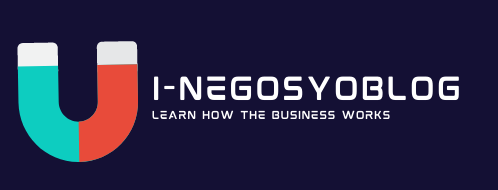 |
| AI Technology in the Philippines: How It's Changing the Landscape of Business and Society |
Artificial Intelligence (AI) is rapidly transforming the world we live in, and the Philippines is no exception. In this article, we'll explore the current state of AI technology in the Philippines, its impact on business and society, and what the future might hold. Specifically, we'll cover the following:
- What is AI technology?
- Current state of AI technology in the Philippines
- Impact of AI technology on business and society in the Philippines
- Future of AI technology in the Philippines
- Conclusion
What is AI Technology?
Artificial Intelligence (AI) is a branch of computer science that deals with the development of intelligent machines that can perform tasks that typically require human intelligence, such as visual perception, speech recognition, decision-making, and language translation. AI technology includes machine learning, natural language processing, robotics, and other related fields.
Current State of AI Technology in the Philippines
The Philippines has been making significant strides in the development of AI technology in recent years. While the country is still in the early stages of adoption, the government and the private sector have been working together to promote the growth of the AI industry. Some of the key developments in AI technology in the Philippines include:
The establishment of the Department of Information and Communications Technology (DICT) in 2016, which aims to promote the development and use of ICT in the country, including AI technology.
The launch of the "AI for Everyone" program by the DICT, which aims to provide training and education on AI technology to Filipinos.
The creation of AI research centers in various universities and research institutions, such as the Ateneo Center for Computing Competency and Research (ACCCRe) and the Philippine Center for Artificial Intelligence and Robotics (PCAIR).
The adoption of AI technology by various industries, such as finance, healthcare, and logistics, to improve their operations and provide better services to their customers.
Impact of AI Technology on Business and Society in the Philippines
The adoption of AI technology has had a significant impact on both business and society in the Philippines. Some of the key benefits of AI technology include:
Increased efficiency: AI technology can automate repetitive and time-consuming tasks, allowing businesses to operate more efficiently and save time and money.
Improved accuracy: AI technology can perform complex calculations and analysis with a high degree of accuracy, reducing errors and improving the quality of results.
Enhanced customer experience: AI technology can be used to personalize customer experiences, such as chatbots that can answer customer inquiries or provide recommendations based on their preferences.
Better healthcare: AI technology can be used to analyze medical data and improve diagnosis and treatment of diseases.
However, there are also some potential drawbacks and challenges to the adoption of AI technology, including:
Job displacement: AI technology can replace some jobs that are currently performed by humans, which can lead to job displacement and unemployment.
Privacy and security concerns: AI technology involves the collection and analysis of large amounts of data, which can raise privacy and security concerns if not properly managed.
Ethical concerns: AI technology raises ethical concerns related to the use of data, bias, and accountability.
Future of AI Technology in the Philippines
The future of AI technology in the Philippines looks bright, with the government and the private sector working together to promote its development and adoption. Some of the potential future developments in AI technology in the Philippines include:
AI technology: As the benefits of AI technology become more widely recognized, there is likely to be increased investment in research and development of AI technology in the Philippines. This could lead to the creation of new startups and companies that specialize in AI technology, as well as the expansion of existing businesses into AI-related fields.
Development of AI talent: The "AI for Everyone" program and other initiatives aimed at promoting AI education and training are likely to lead to the development of a pool of skilled AI professionals in the Philippines. This could create new job opportunities and make the Philippines a hub for AI talent in the region.
Expansion of AI applications: As AI technology becomes more advanced and sophisticated, its potential applications are likely to expand. This could lead to the creation of new products and services that are powered by AI technology, as well as the integration of AI technology into existing products and services.
Collaboration with other countries: The Philippines is already collaborating with other countries, such as Japan and South Korea, on AI research and development. This could lead to further collaboration and knowledge-sharing in the future, which could accelerate the growth of the AI industry in the Philippines.
Conclusion
AI technology is rapidly changing the world we live in, and the Philippines is no exception. While still in the early stages of adoption, AI technology has already had a significant impact on business and society in the Philippines. The future looks bright for AI technology in the Philippines, with the government and the private sector working together to promote its development and adoption. As AI technology continues to evolve, it will be interesting to see how it transforms the Philippines and the world at large.



No comments